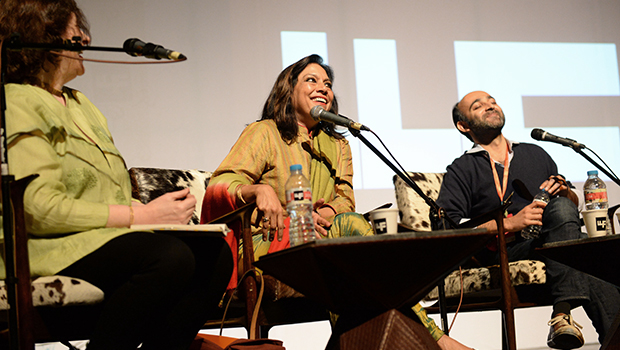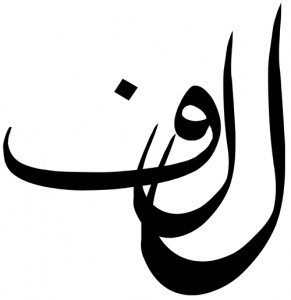By Annabel Symington
The Wall Street Journal, Feb. 22, 2014

The cultural capital of Pakistan is again playing host to the Lahore Literary Festival this weekend, in another attempt to resuscitate Pakistan’s rich cultural heritage.
The three-day event that started on Friday is the second edition of the annual festival dedicated to Pakistani and foreign literature. It’s bigger than last year with more than 100 Pakistani and foreign writers, artists, poets, journalists and historians descending on the historic Punjabi capital for a weekend of discussion and celebration of the written word. The organizers also expect the audience to be twice the size of last year’s gathering.
That festival was propelled to great success by the sheer momentum of the enthusiasm to make it so. It frequently felt more like a rock concert than a bookish gathering. Raucous crowds whooped and cheered, and adoring groupies mobbed writers and artists.
The discussions were also deeply political and centered on what it means to be a Pakistani and a Pakistani writer. The festival came just three months before the country’s general elections, and there was a huge sense of optimism that a new beginning was just around the corner.
But this year’s festival is happening as the military has begun aerial strikes against Taliban strongholds in North Waziristan; the government’s attempt at peace talks with the militant group lies in tatters. There’s confusion over whether the military offensive is the beginning of a sustained operation against the Taliban, whether the Army and the government are on the same page about their response to the militant threat and what the Taliban will do in retaliation against military strikes.
Optimism has been replaced by uncertainty, and that sense percolated the opening session of the festival on Friday.
“As the country faces crisis after crisis, we want to reaffirm Pakistan and reestablish Lahore as the land of Sufism, literature and art,” said Ahmed Rashid, the bestselling author of Descent into Chaos and Pakistan on the Brink and a member of the festival’s advisory committee, during his opening speech, “Don’t be afraid to be with us because we’re not afraid to be with you,” he added. “We dream of a time of peace and free expression, and by being here today you ensure that we can achieve our goals.”
During the opening event there were repeated references to reclaiming Pakistan’s democracy, suggesting that seven months after the country achieved the first ever democratic transition of power between two elected governments, the people of Pakistan remain unconvinced by their political leaders.
But otherwise, the program feels less political than last year’s event—and some of the sessions sound more erudite than pragmatic with titles such as “Dissonance to Detour” and “Beyond the Global Novel.”
“We wanted to keep domestic politics out. There’s too much uncertainty at the moment,” said one of the festival organizers, “And if we bring in the [political] parties, we risk being accused of being partisan, which we want to avoid.”
Malala Yousafzai, the Pakistani schoolgirl who was shot in the head by the Taliban on her way to school in 2012 and has become a global icon of defiance against the militant group’s extremism, made an appearance on Friday by video message. She reiterated the importance of reclaiming Pakistan’s cultural space.
“We have taken this step to show the art and culture within our society,” Ms. Yousafzai said with an eloquence that has come to be expected of the teenager who is also a published author. “But it’s not only sharing art but also about sharing our feelings that is necessary in Pakistan today.”
Fakir S. Aijazuddin, a well-respected art historian and expert on Lahore’s history, likened the Lahore Literary Festival to concerts organized during the London blitz in the Second World War at the National Gallery in London.
The director of the U.K. museum, Kenneth Clark, organized regular lunchtime music concerts at the gallery and invited people to come and listen for free. When challenged why he was engaging is something so frivolous when there was a war going on, he reportedly replied, “Because I want to remind people that these are the values that we are defending.”
Or as Fasih Ahmed, brother of the festival’s founder, Razi Ahmed, and a key part of the organizing team himself, put it, “The festival will be held every year to shore up space that we’ve lost.”
See the original article here.


